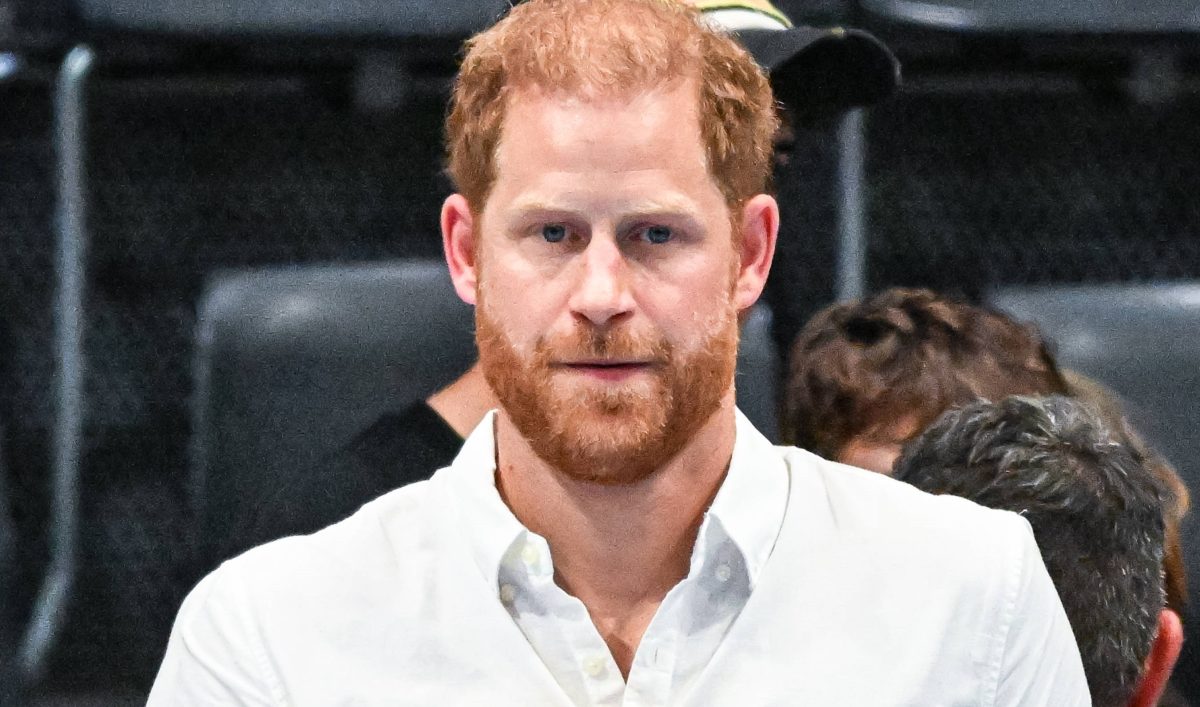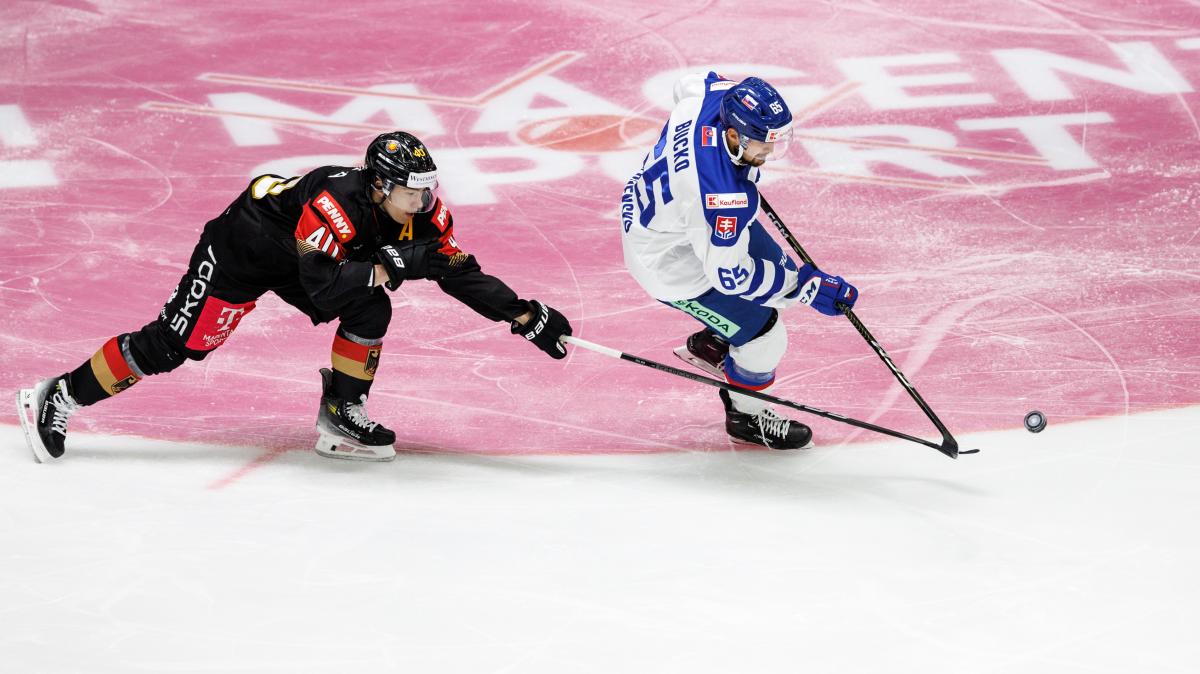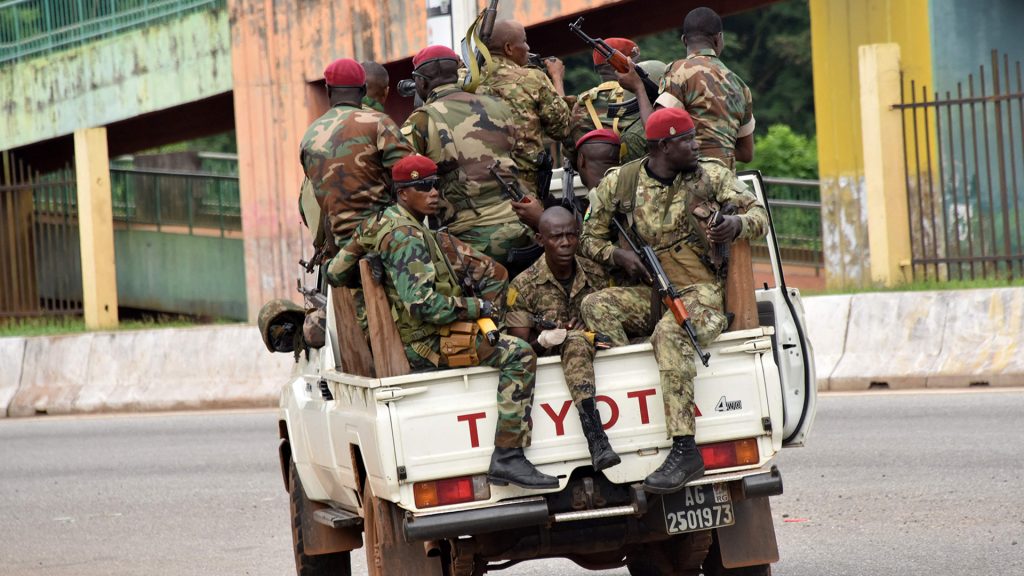Status: 06.09.2021 03:41 AM
Shooting, military vehicles and curfew: Guinean President Alpha Condé is said to have been ousted. The exact circumstances are unclear, but other countries are stunned and are calling for his release.
International criticism of the alleged coup attempt in West African Guinea is mounting. After UN Secretary-General António Guterres condemned “every takeover of the government by force of arms,” the European Union, the United States of America, the African Union and former colonial powers France and Great Britain voiced public criticism. The exact background and circumstances of Sunday’s turbulent events were not unequivocally clarified on Monday night.
According to the British Embassy in Conakry, there was a continuous exchange of fire at several locations in the capital over the course of Sunday. Unverifiable videos initially circulated on social media referring to the overthrow of President Alpha Condé. A video clip bearing the logo of the state broadcaster showed several men in uniform and carrying the national flag – one of whom claimed that the government had been overthrown. He also said that the constitution was abolished and the country’s borders closed.
The army in the streets
The videos are also circulating on social media. You can see on them: mostly heavily armed and partially disguised military men – plus 83-year-old President Conde in a colorful T-shirt and jeans sitting on the sofa. When asked if he had been tortured, the head of state was silent. At first it was unclear where the president was.
French-language broadcaster TV5 Monde and other media reported that the Guinean Defense Ministry said on Sunday afternoon that the presidential guard and other security forces had repulsed the gunmen. An eyewitness told “German News Agency” that the situation is very tense. Firefights took place, especially near the presidential palace in Kalum district. The army is said to be patrolling the streets of Conakry.
President Conde came to power in Guinea in 2010.
Build: AP
international protest
In the evening, a curfew was announced on the TV news. Therefore, government ministers must be dismissed and the heads of the regional administration replaced by the army. Officials were called back to work on Monday. Deposed ministers and heads of various government institutions must come to the Monday morning meeting – otherwise they will be guilty of “rebellion”.
UN Secretary-General Guterres called on Twitter on Sunday evening for the president’s immediate release. British Ambassador David McIlroy and EU External Action Representative Josep Borrell offered similar views. Borrell appealed to all to act according to the rule of law for peace and for the benefit of the Guinean people. France, the former colonial power, also condemned the attempt to seize power by force and demanded a return to constitutional order and the immediate and unconditional release of Condé.
Controversial constitutional amendment
According to media reports, the rebels are led by Mamady Domboya, commander of a special unit. In another unverified video, he cited, among other things, the exploitation of the judiciary, the looting of state revenue and corruption in Guinea as reasons for the dismissal of Condes. Videos circulated on social media showing Conakry residents cheering and applauding the patrolling soldiers.
President Conde came to power in 2010 in the first free democratic elections since Guinea’s independence in 1958. He is credited with reforms in the economy and military and, after politically turbulent decades, also worked to ensure greater stability. However, critics argue that Conde was an increasingly authoritarian ruler whose tenure was marked by human rights abuses. Last year, he secured a third term after a controversial constitutional amendment. The poll was preceded by months of political tension and violent protests.
With information from Dunja Sadaqi ARD-Studio Nordwestafrika

“Tv expert. Hardcore creator. Extreme music fan. Lifelong twitter geek. Certified travel enthusiast. Baconaholic. Pop culture nerd. Reader. Freelance student.”






More Stories
USA: It is clear that the economy is losing momentum at the beginning of the year
Chocolate storm in Türkiye – the Swiss are confused
Big Topics at New UBS's First General Meeting – News